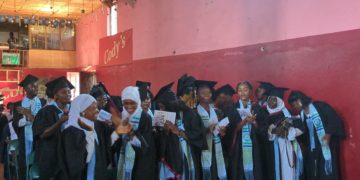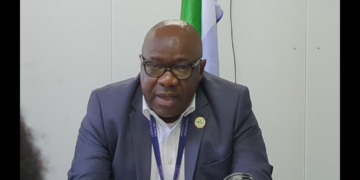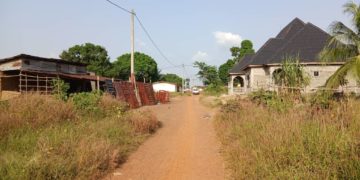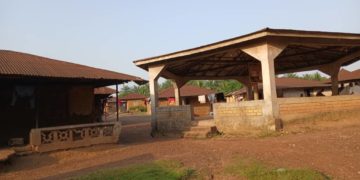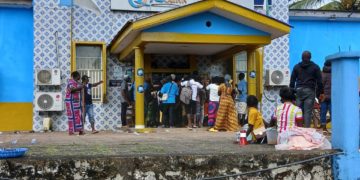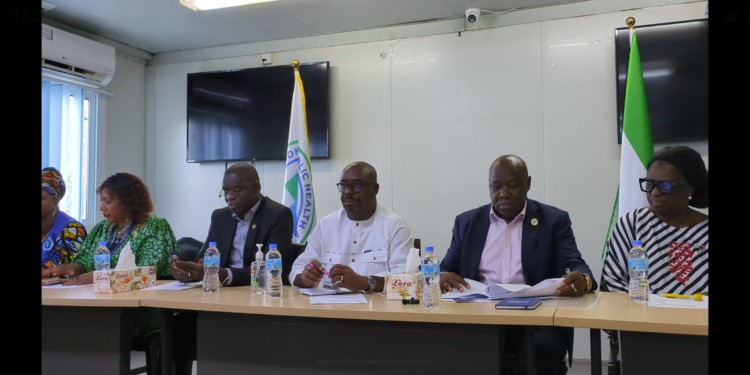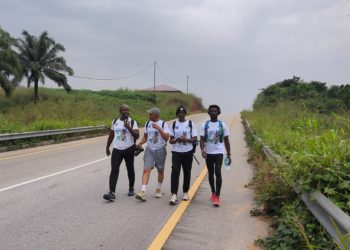By Kemo Cham
Sierra Leone is moving closer to reach its target at viral sequencing with the establishment of one more laboratory, bringing to eight the total number of labs capable of advanced testing.
Officials disclosed on Wednesday, June 11 that the new lab is being established in collaboration with the Institute Pasteur de Dakar in Senegal, which has deployed an expert to work with Sierra Leonean health authorities in responding to the ongoing epidemic.
Viral sequencing is the process of determining the order of nucleotides in a virus’s genetic material (genome), through which scientists understand its characteristics, evolution and how it interacts with its host. This process is a crucial tool in diagnostics, infection control, and developing treatments and vaccines.
“Sequencing tells us what we are dealing with,” Prof. Foday Sahr, Executive Director of the National Public Health agency (NPHA), told journalists at a joint press briefing at the Emergency Operation Center of the Ministry of Health in Freetown.
The press conference was held alongside a team from the ECOWAS Regional Center for Surveillance and Disease Control (RCSDC), headed by its Executive Director, Dr Mamadou Diarrassouba.
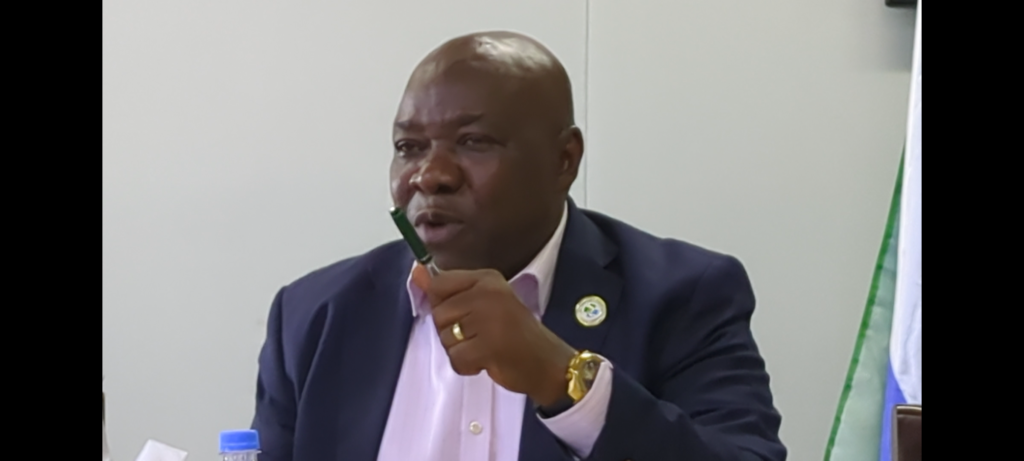
The World Health Organization (WHO) recommends for at least 8 percent of samples in a country to be sequenced. However, with only two laboratories with this capacity at the start of this epidemic, Sierra Leone could only sequence 1.7 percent of its samples.
Prof. Sahr told reporters at the presser that Sierra Leone’s Mpox testing capacity in general had improved from five laboratories at the beginning of this epidemic to eight. Initially, he noted, samples were sent to Dakar for sequencing because of lack of the capacity in-country.
“Now we have local capacity. We are now doing sequencing at the CPHRL (Central Public Health Reference Laboratory) in Lakka and the Kenema laboratory. And with the deployment of the laboratory in Port Loko, they are also coming with the capacity to do more sequencing, so that we can target 8 percent as stipulated by international standard,” the NPHA boss said.
The Institut Pasteur de Dakar (IPD) is a world class scientific establishment dedicated to the prevention and treatment of diseases, primarily infectious diseases, through research, innovation, teaching and public health actions.
IPD was directly involved in Sierra Leone’s response to the deadly West African Ebola epidemic. Dr Abdourahmane Sow, its Director of Public Health, was part of the team in the country during Ebola. Dr Sow is again in the country nearly 10 years after the end of that epidemic. He said one of their top priorities for the current emergency is to investigate every single case and get them treated in time.
“At IP Dakar, in context with WAHO ECOWAS, we are bringing additional capacity in Port Loko area, where our objective will be bringing capacity for sequencing and diagnostics, to make sure that all the suspected cases will be tested, detected and treated,” he said.
Laboratory capacity building is just one of several fronts being pursued by the Sierra Leone government and its partners in response to the Mpox epidemic, which Africa CDC data shows remains a major concern despite slight reduction in cases across the continent recently.
Latest data provided by the continental public health agency as of Thursday, June 12 shows that Sierra Leone is still leading the trend of new cases on the continent. Sierra Leone, alongside the Democratic Republic of Congo and Uganda accounted for 86 percent of the cases in week 22 (as of June 11).
Sierra Leone alone accounted for 63 percent of those cases. As of Wednesday, the country had recorded 3,922 cumulative confirmed cases, with 3001 recoveries and 22 deaths.
The NPHA says its focus is on reducing transmission, and it is banking on heightening surveillance and contact tracing measures. It is also planning on expanding its vaccination campaign as more vaccines are expected in the country.
Africa CDC officials fear that the situation in Sierra Leone poses threat to the larger sub-region, as cases continue to spiral to new host countries, with the latest being Togo, where cases have now increased to eight since it recorded its first case on May 16.
“Mpox doesn’t known borders and fighting it requires working as a family,” said Dr Diarrassouba of the RCSDC, which is an entity of the West African Health Organization (WAHO) of ECOWAS.
“We are here not only to show support, our presence here is to show that we are together,” he stated.
The ECOWAS RCSDC head noted that with the withdrawal of donor funding, it becomes even more urgent and pertinent for African nations to prioritize self-funding of their development interventions.
“We need now to use our own resources, our own energy and intelligence, to address our own problems. That’s why we are here, to support the ECOWAS efforts,” he said.


